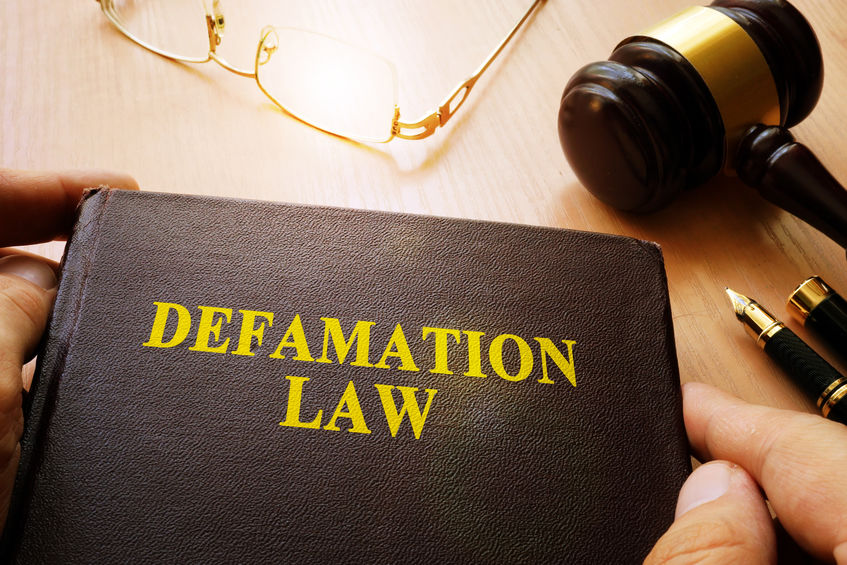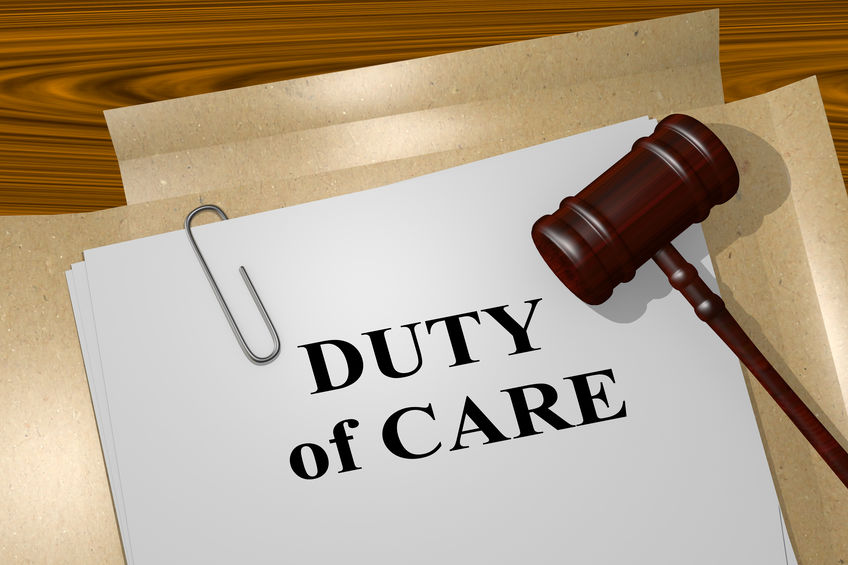

When to Sue for A Traumatic Brain Injury
Traumatic brain injuries (TBI) are responsible for many deaths and permanent disabilities every year. TBIs are typically caused by a violent bump, blow, or jolt to the head. In some cases, an object penetrates the brain such as a shard of glass from a windshield and causes a penetrating head injury that disrupts normal brain function. Symptoms of traumatic brain injuries include physical paralysis, chronic pain, sleep issues, loss of hearing, loss of control of bowels or bladder, headaches, lost sense of taste, and seizures. The list of potential health issues goes on from there.
Read More

What is Personal Injury Law?
Personal injury is a legal term that describes a mental, emotional or physical injury to the body, as opposed to an injury to property. A personal injury lawsuit is a type of tort lawsuit under civil law where the person bringing the suit (the plaintiff) has suffered a personal injury and is suing the person(s) who injured them (the defendant(s)) to recover damages for their injuries. In most cases, a personal injury attorney is retained by the plaintiff to handle the action.
Read More

What is Defamation and Does It Fall Under Personal Injury?
Defamation or defamation of character means that someone made a statement that injures another’s reputation. A written statement is called “libel” and a spoken statement is called “slander.” Defamation is a civil wrong so it does fall under personal injury laws. In some cases, a person who is defamed is able to sue the person or organization who defamed them in order to recover damages, just like in other personal injury claims.
(more…)
Read More

What is Duty of Care in Personal injury Law?
Most personal injury claims center around the negligence of the defendant in order to establish the defendant’s fault for the accident. And yet, the very first element in a successful personal injury claim is showing that there was a relationship that created a “duty of care.” It would be helpful to understand what is a duty of care, how it relates to negligence and some examples of when a duty of care is owed.
(more…)
Read More

What is False Arrest and Can I Sue for Damages?
An arrest is when a person is apprehended and taken into custody; it requires probable cause. A false arrest is when a person is held against their will or taken into custody without consent or a legal justification. When a person is falsely arrested, they may be able to bring a civil claim for damages under tort law. Note that many false arrests are carried out by store managers, mall security guards and others who are not police officers.
A false arrest is considered an intentional tort, which means that the accused knew of and wanted the consequences of their actions.
If you were the victim of false arrest, contact an experienced local personal injury attorney. The lawyer can review the details of your situation and discuss your legal rights. If the attorney takes your case, they will work to negotiate a fair settlement or jury award for your damages.
Proving an intentional tort
Intentional act:
In order to prove an intentional tort, the plaintiff will need to show that the defendant’s conduct went above and beyond simple carelessness or negligence. It must be proved that the defendant intentionally restrained the plaintiff.
Awareness of confinement:
In order to recover damages, the plaintiff will need to show that they were aware of the confinement at the time it happened. Defendant’s may argue that the plaintiff was too intoxicated or drugged to be aware of being confined. Note that the plaintiff does not need to know that their arrest wasn’t legal when it was happening but if they consented to be arrested because they thought it was legal, they will not be able to sue to recover damages for false arrest.
Was there a legal basis for the arrest?
A defendant will attempt to prove that there was a legal basis for the arrest they made, such as reasonable suspicion of a crime being committed, or a warrant or court order. This means that a reasonable person in the defendant’s position would have had cause to believe that the plaintiff was committing a crime before they arrested them or that they had a legal warrant/court order for their arrest.
Can police officers be sued for false arrest?
In Washington State, “A police officer is immune from liability for false arrest and false imprisonment when he acts pursuant to and in accordance with a statute he reasonably believes to be valid.”
This means that in order to sue a police officer for false arrest, a personal injury attorney would have to prove that the police officer knew or that a reasonable police officer would have known that the arrest was not in accordance with a valid statute.
Seek the help of a personal injury attorney
If you or a loved one was injured because of the negligence of another, contact a personal injury lawyer to discuss your legal rights. Let an experienced injury attorney fight for the full compensation that you deserve. It is not uncommon to receive a settlement from the insurance company that is five to ten times larger with the help of a lawyer. Call the personal injury lawyers at Tario & Associates, P.S. in Bellingham, WA today for a FREE consultation! We have been representing residents of Whatcom County, Skagit County, Island County and Snohomish County since 1979. You will pay nothing up front and no attorney fees at all unless we recover damages for you!
Read More

Why Is It Important to Choose an Experienced Personal Injury Attorney with Great Results?
All personal injury attorneys are NOT created equal. There is a whole range of attorneys out there from average to bad to great; a great attorney will have the results to prove it. In addition, experience varies widely between accident lawyers. There’s a big difference between an attorney right out of law school and one who’s been practicing for decades and has represented thousands of clients. If you’re looking for a personal injury attorney to handle your personal injury claim, there are many factors to consider but experience and proven results should be at the top of the list.
(more…)
Read More

Personal Injury Claim for Parasailing Accident
About three to five million people go parasailing every year. Thankfully, most parasailing experiences turn out to be a wonderful adventure. Unfortunately, parasail accidents do happen; causing some to question parasailing safety and liability. Parasail accident statistics reveal the risk people take when they agree to be towed behind a vehicle (usually a boat) while harnessed to a canopy wing that looks like a parachute, known as a parasail wing.
If you or a loved one was injured in a parasailing accident because of the negligence of a parasail operator, seek the help of a personal injury lawyer right away. A wrongful death action may be appropriate if you lost a loved one in the accident. An accident attorney can discuss your legal rights and options.
(more…)
Read More

Amusement Park Accident Leads to Death of 10-Year-Old Girl
As reported on globalnews.ca, a 10-year-old girl died in an amusement park accident at the Deerfield Township harvest festival in New Jersey on Saturday, October 12. The child was ejected from a ride called Wisdom Super Sizzler and suffered serious injuries. The girl was airlifted to a hospital but was pronounced dead later that evening. A statement by the New Jersey State Police confirms that they are looking into the matter and that they have not concluded the cause or circumstances of the incident. The amusement ride operator shared on their Facebook page that they are cooperating with the investigation.
(more…)
Read More

Taco Bell Recalls Seasoned Beef After Customer Finds Metal Shaving in Food
Taco Bell has voluntarily recalled 2.3 million pounds of seasoned beef after three customers found metal shavings in their food order. According to the U.S. Department of Agriculture (USDA), there are no confirmed adverse reactions to this Taco Bell beef but Taco Bell had pulled the beef from all affected restaurants by midday Monday, October 14. The recalled seasoned beef taco and burrito filling was processed by Kenosha Beef International, located in Columbus, Ohio and shipped to Taco Bell restaurants in 21 states through distribution centers in Michigan, New Jersey, New York, Ohio and Virginia. The food processor announced the recall on Monday, October 14 after hearing of the complaints on October 12. The beef involved in the recall was made between September 20 and October 4.
Read More

Personal Injury Claim for Bullying
Bullying is a serious problem that has always affected children. In recent years, researchers, school teachers and administrators, and families have begun to take the issue more seriously. Sincere attempts are being made to catch warning signs and step in when a child is at risk.
There are no easy answers to solving the problem of bullying but bullying prevention approaches that offer the best results involve coming at the problem from multiple sides.
